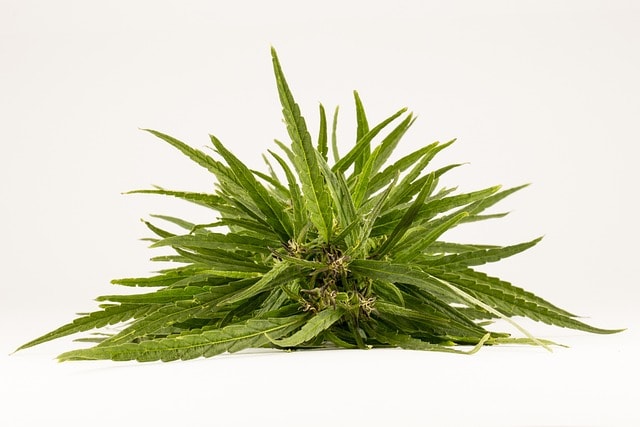 Free shipping on all orders over $60
Free shipping on all orders over $60 
With the world of cannabinoids continuing to expand, THC-O (THC acetate ester) is a new chemically synthesized cannabinoid that’s been gaining popularity in the cannabis market. In this article, we will explore the THC-O chemical nature, potential effects, legality and…
With the world of cannabinoids continuing to expand, THC-O (THC acetate ester) is a new chemically synthesized cannabinoid that’s been gaining popularity in the cannabis market. In this article, we will explore the THC-O chemical nature, potential effects, legality and everything you need to know about this new synthetic cannabinoid.
THC-O, or tetrahydrocannabinol acetate, is a synthetic cannabinoid extracted from THC (tetrahydrocannabinol). Chemically, THC-O is an acetylated form of THC. This means that acetate is added to the THC molecule, and therefore alters the properties of the molecule. THC-O is only synthesised chemically it is not an organic substance like THC.
In 1949, the U.S. military started doing chemical research on this chemical compound. The DEA found an illegal lab in Florida US in 1970s cannabis compounds with acetate ester, but only recently THC-O edibles and other products have captured the attention of cannabis users.
There is no confirmed data on how potent THC-O is, as the research is still in its infancy. THC-O is reported to be significantly more potent than THC due to greater bioavailability. Consumers also report THC-O as being more psychedelic than THC and offer a more spiritual psycho-activity than other cannabinoids. Some users described the feeling as similar to using mushrooms.
While research on THC-O’s therapeutic uses is limited, some suggest it may have potential applications similar to THC and other hemp plant compounds. One research participant reported feelings of relaxation, euphoria and pain relief. Other effects could include appetite stimulation and mood enhancement. However, more research is needed to fully understand its therapeutic potential.
Yes, THC-O is very psychoactive. It interacts with the body’s endocannabinoid system and may alter mood, consciousness and cognitive function. It is reported that the ‘high’ or the psychedelic effects of THC-O acetate ester are more intense than the regular THC.
One of the main reasons THC-O gained popularity is because of the reported psychedelic experience this compound creates. Some even reported the effects to be similar to mushrooms, however, as this substance is under-researched and the effects are not confirmed by scientists, some wonder if it is not a marketing or a placebo trick.
The duration of THC-O’s effects can vary. On average, users report that the high from THC-O lasts longer than from THC. Typically, the effects may last several hours, with peak experiences occurring within the first few hours after consumption. The exact duration can depend on factors such as dosage, individual metabolism, and consumption method.
There are no reported cases of THC-O overdose, however, THC-O, like other cannabis products can have side effects. The most common issues may include psychoactive effects, dry mouth, dizziness, and fatigue. Given its potency, users may also experience effects of cognitive distortions, anxiety, paranoia and even hallucinations, particularly if consumed in higher doses.
Because THC-O products are very potent, it is advised to start with a low dose for more experienced users, and gradually adjust the dosage based on individual experience. If you are using any other medications or have health conditions, consult with a healthcare professional before starting synthetically produced THC-O products.
THC-O is very likely to show up on a drug test because the body processes the chemical compounds and transforms them into metabolites that show up on drug tests. Depending on how much and how often you consume THC-O, it may show up on a drug test for up to 90 days.
In 2018, the Farm Bill legalised cannabis plant products and their derivatives as long as they do not have more than 0.3% THC. However, in 2023, the DEA (Drug Enforcement Administration) announced that since THC-O is not naturally found in hemp plants and is chemically created, it is not considered ‘hemp’ and therefore does not comply with the Farm Bill and is not considered federally legal is the majority of US countries.
Holt, A.K., Poklis, J.L. and Peace, M.R., 2022. ∆ 8-THC, THC-O acetates and CBD-di-O acetate: emerging synthetic cannabinoids found in commercially sold plant material and gummy edibles. Journal of Analytical Toxicology, 46(8), pp.940-948.
Benowitz, N.L., Havel, C., Jacob, P. et al. Vaping THC-O Acetate: Potential for Another EVALI Epidemic. J. Med. Toxicol. (2022)
Kruger, D.J., Bone, C.C., Meacham, M.C., Klein, C. and Kruger, J.S., 2023. THC-O-Acetate: scarce evidence for a psychedelic cannabinoid. Journal of Psychoactive Drugs, pp.1-5.